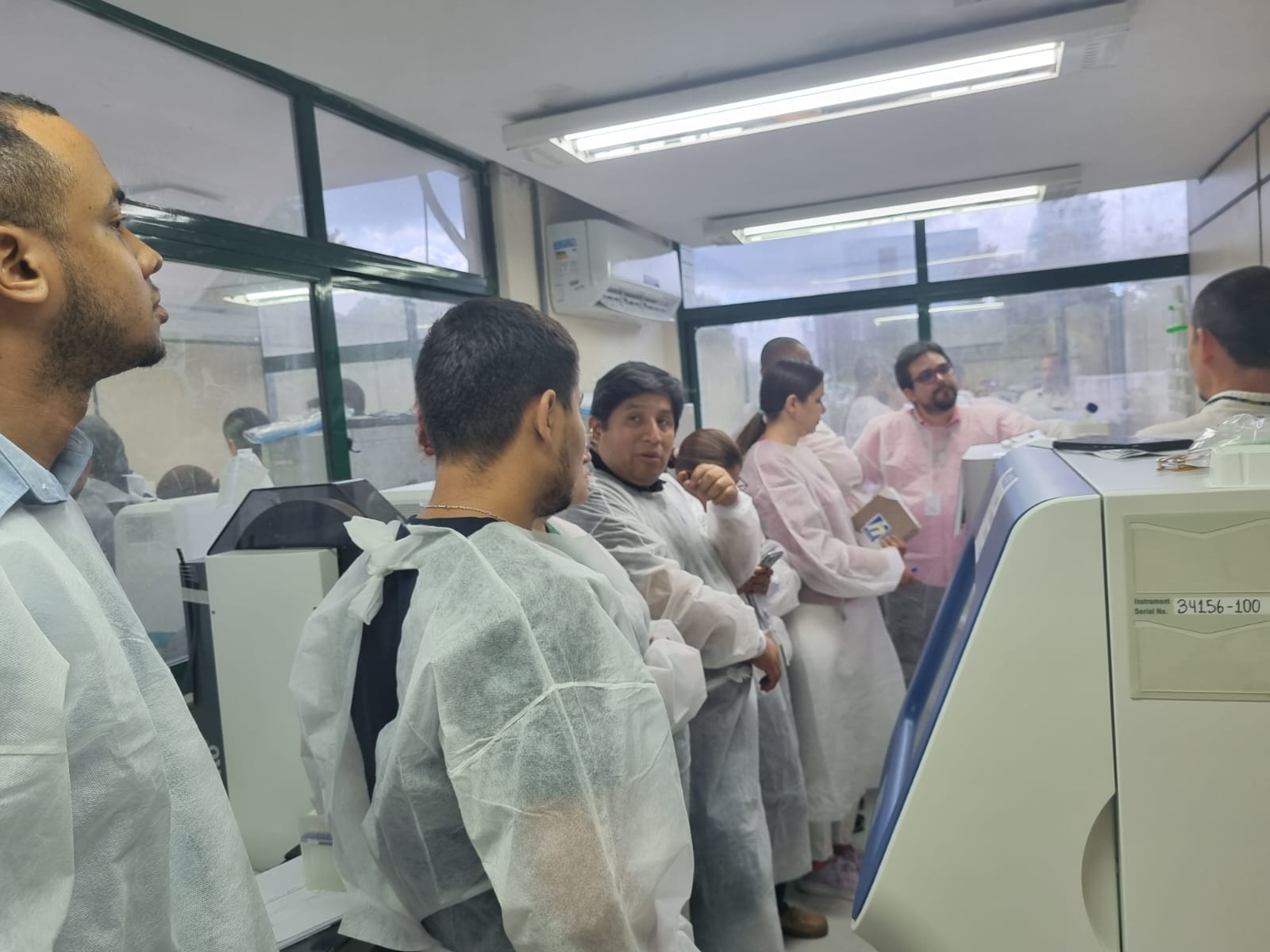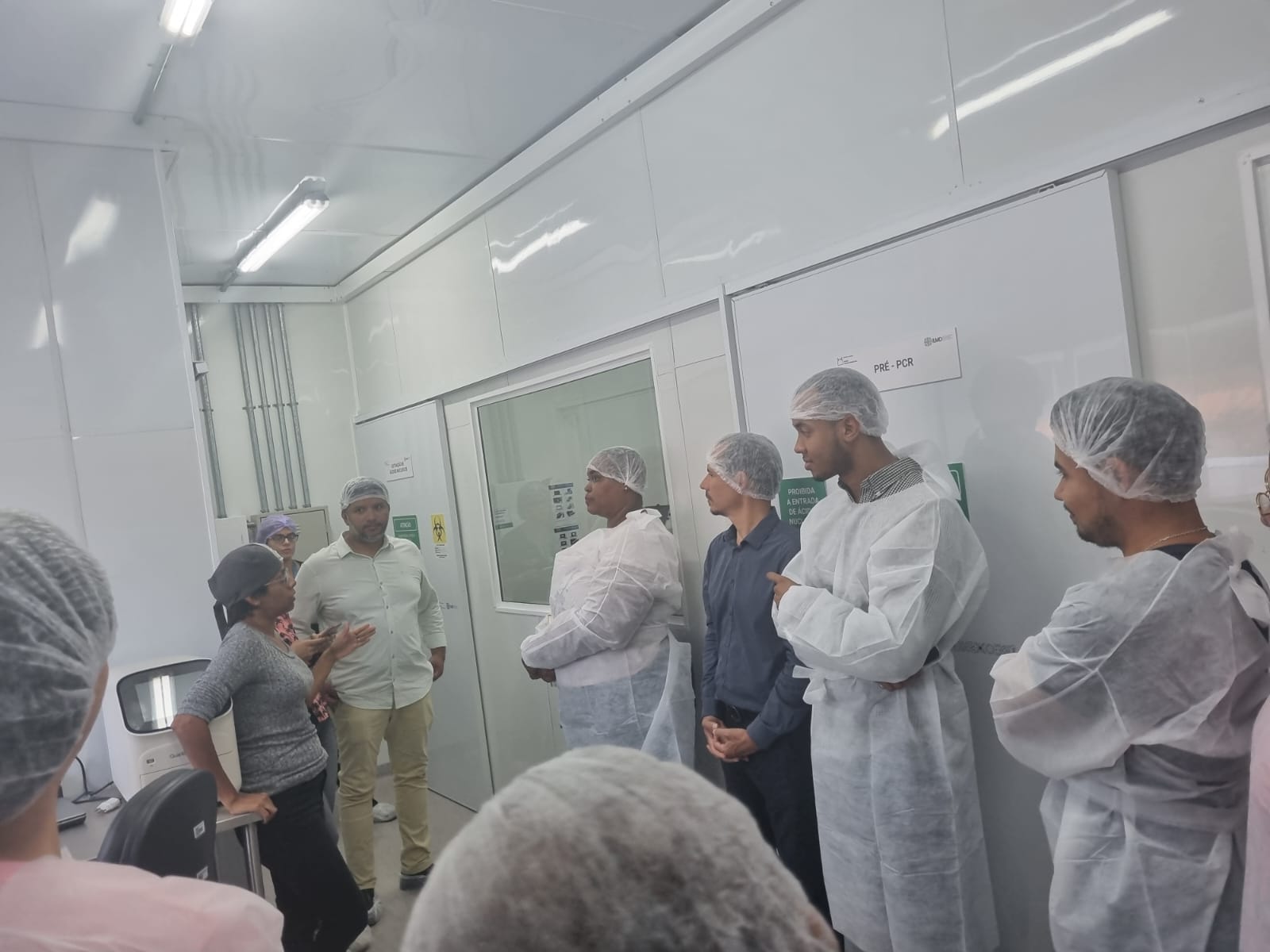
Manaus, 29 April 2024 (PAHO) Arthropod-borne viruses (arboviruses) are a growing threat to public health worldwide, with the emergence and re-emergence of arboviruses like Oropouche and Mayaro in conjunction with the sustained circulation of other arboviruses like dengue and chikungunya causing concern. To address this critical issue, the Leônidas & Maria Deane Institute (ILMD/Fiocruz Amazônia) and the Infectious Hazards Management Unit, from the Health Emergency Department (IHM/PHE) at the Pan American Health Organization (PAHO) have taken a significant step forward by co-hosting a five-day International Workshop on Molecular Surveillance of Emerging and Re-emerging Arboviruses.
The main vector of the Oropouche virus (OROV), discovered in Trinidad and Tobago in the 1950s, is a biting midge, Culicoides paraensiswas. OROV infection presents with symptoms similar to dengue, making it challenging to diagnose without laboratory confirmation. Since the end of 2023, Brazil has experienced the largest outbreak of Oropouche fever in recent years, with over 3,000 confirmed cases in the Amazonas State alone. Cases have also been identified in other Brazilian states, including some outside of the Amazon basin, and in other countries including Bolivia, Colombia, and Peru. Additionally, Mayaro fever cases, which might also present clinically as dengue-like disease, have been confirmed, indicating the circulation of both viruses in the region.
Health professionals and researchers from Bolivia, Ecuador, Guyana, Paraguay, Peru, Suriname, Venezuela, and Brazil are gathering to share protocols for molecular testing and whole genome sequencing, alongside epidemiological and bioinformatic tools aimed at enhancing molecular surveillance efforts in the Amazon region and beyond in the Americas. The workshop combines theoretical and practical training and aims to equip participants with the necessary knowledge to effectively detect and monitor emergent and reemergent viruses, particularly OROV and MAYV viruses.
Dr. Felipe Naveca, Public Health Researcher from the ILMD/Fiocruz Amazônia, stated: 'The workshop we held to train colleagues from different countries in the surveillance of the Oropouche and Mayaro viruses was a fundamental event due to the current epidemiological scenario in South America. We had five intense days where we worked on obtaining the viral genetic material, molecular diagnosis, entomo-virological surveillance, epidemiological data analysis, and analysis of 42 Oropouche virus complete genomes generated by the participants during the course.
I am very proud of my team at Fiocruz Amazônia, and it was heartening to see that the participants felt included at all stages and that they could deepen the surveillance of these viruses in their countries. Once again, I would like to thank PAHO for such a profitable partnership.'
The initiative delves into molecular diagnostics, sequencing techniques, epidemiological data analysis, and phylogenetic characterization – all crucial tools for combating these viruses. Furthermore, PAHO and ILMD-Fiocruz are leveraging their expertise to showcase a groundbreaking one-step RT-PCR protocol developed by ILMD-Fiocruz. This innovative protocol allows for the simultaneous detection of both MAYV and OROV, making it a vital tool for public health labs in Brazil and beyond. This workshop empowers participants to utilize this innovative technique and strengthens regional defenses against these emerging threats. The workshop is also an opportunity to share and discuss the recently published PAHO Guidelines for the Detection and Surveillance of Emerging Arboviruses in the Context of the Circulation of Other Arboviruses.
For more information: https://www.paho.org/en/documents/guidelines-detection-and-surveillance-emerging-arboviruses-context-circulation-other





